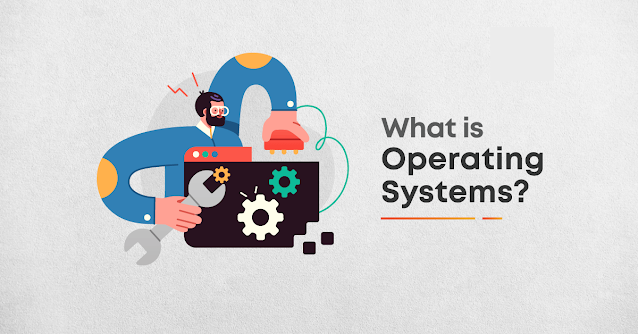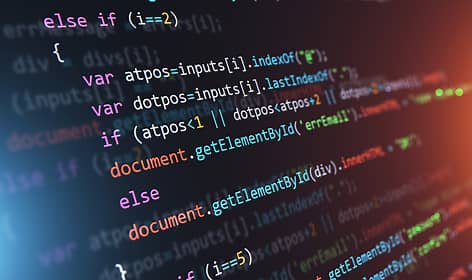Top 5 Resources to learn NodeJs
Top 5 Resources to learn NodeJs
The way
JavaScript is developed has been drastically transformed by Node.js. JavaScript
was once considered to be a client-side language since it is used for
client-side animations, interaction, and validations and runs in a browser.
By enabling
JavaScript to operate on the server-side, Node.js advances that by allowing you
to create JavaScript programmed that can run independently of a browser. Node
JS does this via the execution engine and asynchronous processing of Google
Chrome.
Until a few years
ago, it was impossible to construct server-side JavaScript apps; all you need
to do is include a node.js script in your application.
Node.js has also
played a vital role in full-stack development using only one programming language
since it is now possible for a JavaScript developer to build an end-to-end web
application using Node.js and React.js or whatever stack they desire.
JavaScript will still be utilized on both the client and server sides.
Due to the huge
popularity of both programming languages, many programmers are learning
JavaScript and the Node.js framework in order to become web developers, most of
whom are full-stack engineers.
1. Introduction to Node JS API Development
(Udemy)
This is one of
the best beginner Node JS courses you can find online. In this course, you will
learn Node JS API Development from the start.
You will learn
all you need to know about node.js in this course, including what it is and why
you should study it, how to set up a development environment, and how
JavaScript functions in settings with and without browsers.
In this course,
you will learn Modern JavaScript, the Node JS event loop, asynchronous
programming, how to use Node modules and NPM modules, how to create your own
modules, how to build a server, how to connect to a database, and how to
provide JSON responses.
It provides a
pretty good balance of theoretical and practical experience, which is very hard
to find in a free course. In terms of social evidence, this has already
benefited more than 11,605 pupils and has received, on average, 4.3 evaluations
from less than 500 participants.
2. Server-side development with MongoDB, NodeJS,
and Express
This is another
free course on Node.js from Coursera, which is my preferred website for online
instruction from a reputable college. This programmed is also offered by the
Hong Kong University of Science & Technology.
After a brief
overview of Web standards, including HTTP and HTTPS, NodeJS and its plugins,
including Express, are discussed in detail.
In order to
access MongoDB from NodeJS, you will learn the fundamental CRUD operations for
relational databases as well as the essential CRUD operations for NoSQL
databases, such as MongoDB and Mongoose.
The foundations
of REST and how to build a RESTful API with authentication and security
features will be covered next. As a concluding point, you'll discover
backend-as-a-service (BaaS) strategies, including mobile BaaS, as well as
open-source and for-profit BaaS services.
Another component
of Full-Stack Web Development with React is this course. If you're unaware, a
Specialization is a set of classes that aid in your skill development. Your
learning in this Specialization will be credited once you have finished this
course.
This course is
free to audit, like many others, which means you can attend it without charge
but won't receive a certificate or grade. If you want a licence, you must pay
for it and finish the other Specialization courses, which also include a
project ideal for gaining some practical experience.
3. Overview of NodeJS (edX)
o edX and Microsoft have released another
excellent free Node.Js course. The finest guide for newcomers to Node.js,
Express, and MongoDB for creating online applications.
o In this online course, you may learn thefoundations of Node.js and its essential parts. You'll also learn how to set up
your project and import additional modules using npm.
o From there, you will discover how to use
Express to configure a web server and Mongoose to interact with a MongoDB
database.
o You will have used node.js to build a number
of practical applications by the conclusion of the course, including a web
scraper, a blogging API, and a database migration script. In general, a
flawless node. JavaScript beginner's class to get you started.
4. Overview of Node JS and Express (Udemy FREE
Course)
Here is a
different friendly Node JS and Express introductory course for beginners. The
course is very instructive and teaches Node JS and Express in a step-by-step
manner. The following are covered in the ten-part series:
I.
Project
Structure
II.
Static
Assets
III.
Templating
Engines
IV.
Dynamic
Requests
V.
Handling
VI.
POST
data
VII.
Rendering
Dynamic Data
VIII.
Images
and Styling
IX.
Middleware
X.
Deployment
You will be able
to launch a fully functional web application and grasp the foundations of a
Node/Express project by the end of this course.
5. Getting Started with Node.js (Pluralsight)
You may enrol in
this top-notch Introduction to Node.js for Beginners course if you have a
Pluralsight membership.
The course,
created by Samer Buna, provides a fantastic introduction to Node.js and
instructs you on how to create asynchronous code using callbacks and streams, modularise
your application using NPM, and utilise require.js ().
You will learn
about the following Node.js subjects in this course:
1.
Node
JS: What, How, and How.
2.
Patterns,
Globals, and Utilities in Node
3.
Package
Manager for Node
4.
working
modules for CommonJs
You will also
discover how to build and grow web applications utilising built-in APIs and a few
crucial third-party modules.


Comments
Post a Comment